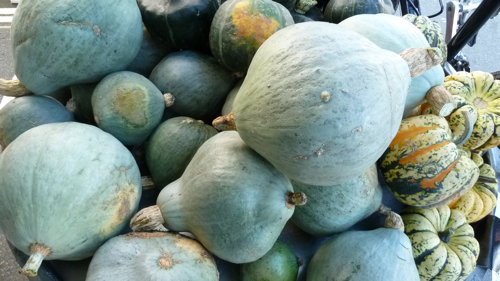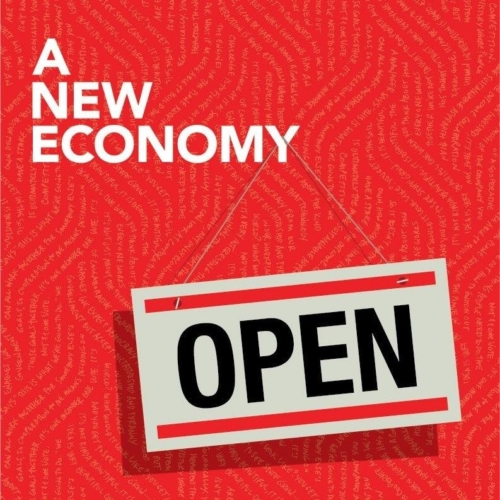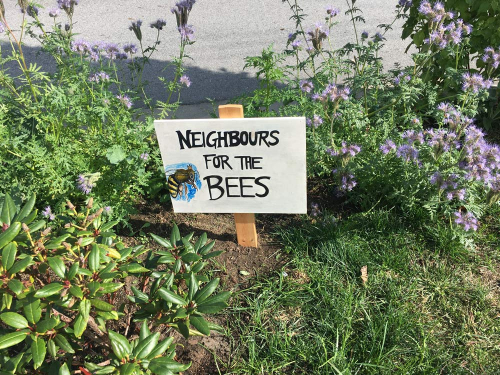Compelling environmental films bloom at VIFF
The environmental film series at the annual Vancouver International Film Festival appears to have blossomed this year with over a dozen films dealing with issues ranging from food waste and sustainable seafood to climate change and the tar sands.
Some of them are surprising for their genre: Burning Ice brings artists, musicians and poets to the Arctic, and People of a Feather takes us intimately into the lives of Inuit whose very existence depends on the down of eider ducks.
Premiering on Tuesday is a film about Canada’s energy use by local filmmaker Charles Wilkinson and produced by his partner, artist Tina Schliessler. I’m particularly excited to see this one as I’ve known the family since my childhood. Peace Out features interviews with both opponents and proponents of our current destructive energy systems, and aerial footage of the tar sands in Alberta, a project so massive it can be seen from space. Seen from a plane, it’s utterly heartbreaking. Ultimately, we all need to use less energy.
While action against the proposed Keystone XL pipeline is drawing attention, the filmmakers of On the Line hike, cycle, raft and kayak the 1,170 km route of another proposed pipeline, the Enbridge Northern Gateway pipeline from the tar sands to the port in Kitimat, BC. The project is set to plow a destructive and risky path through Alberta and BC, uprooting communities and potentially damaging the beautiful ecosystems upon which we all rely and which are integral to First Nations cultures. (Enbridge’s pipeline spill last July dumped 3.8 million litres of crude oil into the Kalamazoo River in Michigan.) What excites me about this documentary is how it’s filmed: local director Frank Wolf‘s prior adventure films are evident in the way the shots are framed and the lighthearted moments evident in the trailer. Psst! Pledge to speak at Enbridge’s public hearings in 2012 to let them know we won’t stand for this.
I expect to better understand what’s happening in other parts of the world that are seriously affected by climate change by watching There Once Was an Island: Te Henua E Nnoho. A unique culture on Morlock Island (Taku’u), part of Papua New Guinea, is threatened by rising oceans and has little hope of getting aid from the government, which prefers to move them to the main island. I sense I’ll be leaving the theatre in tears and hopefully reenergized to do something about it, as far away as I am. In the West, we’re more financially capable of mitigating the effects of climate change, a phenomenon we’ve largely caused, but the people of the world most deeply affected don’t have these resources. They can only try to adapt; we have the power to prevent catastrophic climate change.
The trailer for Taste the Waste hit me so hard emotionally that it was instantly on my shortlist. Food waste affects us in myriad ways: rotting food (as opposed to composting) is a major contributor to greenhouse gases; in our kitchens, food wasted is money wasted; and sending uneaten food to the landfill adds to disposal costs. Ordering too much food in a restaurant means choosing between wasting food, overeating, or getting takeout containers — and the container itself is likely garbage. Taste the Waste is a heavy-hitting wake-up call to change our ways on both personal and systematic levels. Read these tips on preventing food waste and check out the Food Scraps Drop Spot.
Out of the five films I’m attending, four are eco-docs. I would still really love to see Surviving Progress and People of a Feather. Rainforest looks both serene and sad.
Tickets for VIFF sell out quickly, so check out the film listings. Keep an eye out for future screenings in mainstream theatres of films you missed (including Sushi: The Global Catch).



